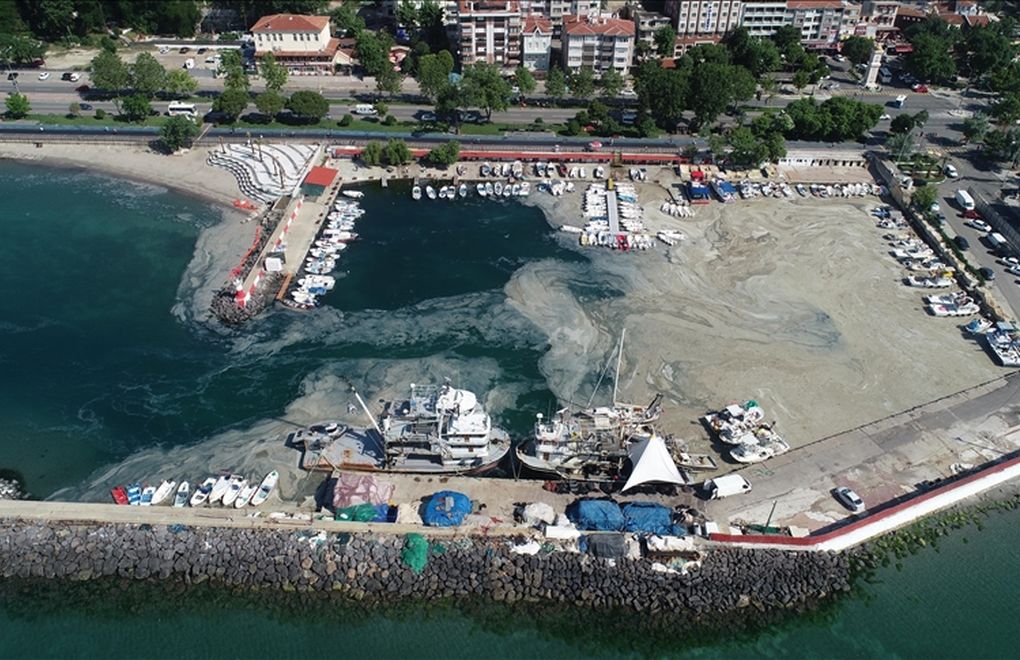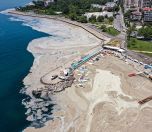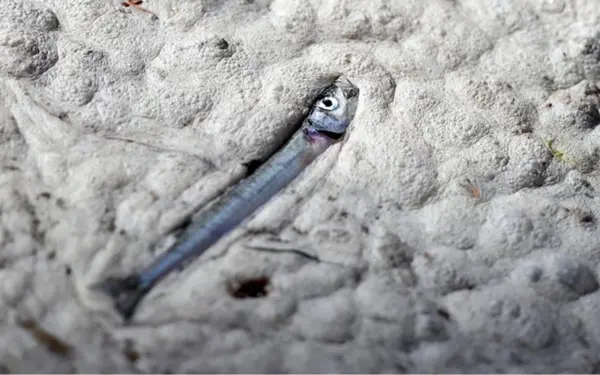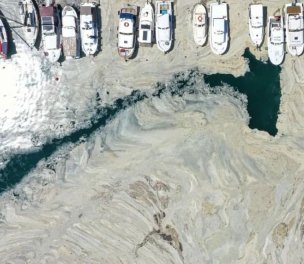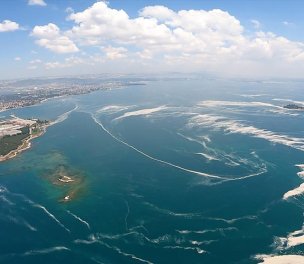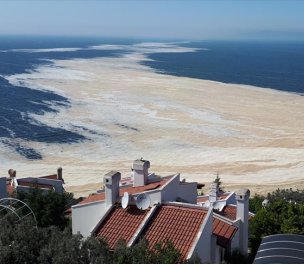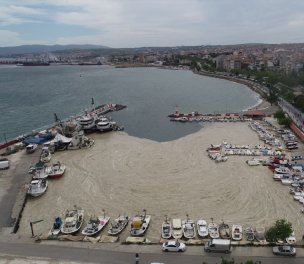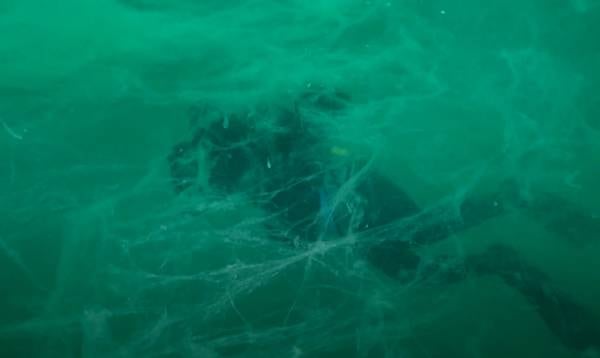Photos: AA/File
Click to read the article in Turkish
While the amount of marine mucilage has significantly decreased in the Sea of Marmara, the oxygen deficiency raises concerns, according to an ongoing study.
Scientists from the Middle East Technical University Institute of Marine Sciences started
The study started in the last week and the vessel arrived in the Sea of Marmara after crossing the Bosphorus strait last week, Assoc. Prof. Mustafa Yücel, the deputy director of the institute, told the state-run Anadolu Agency (AA). The survey will continue for the next 10 days, he added.
Since early 2021, marine mucilage had been accumulating in the inland sea and it covered the surface of the sea along many of its coasts by early June.
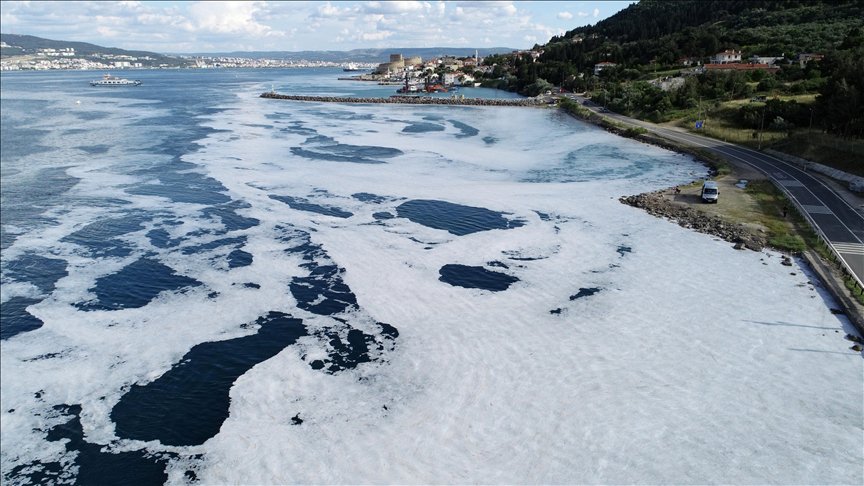
"The problem of excess nitrogen and phosphorus loads that cause mucilage in Marmara still continues," Yücel said.
"Usually, in marine ecosystems, oxygen deficiency becomes more acute and increases towards the end of summer and summer. Unfortunately, we are seeing this in Marmara right now.
Marmara, which has similar or lower oxygen values compared to the oxygen values we have observed in the summer months in recent years. Mucilage hasn't made it any better."
Saying that they had been extensively working in İstanbul's south and the İzmit Bay, Yücel noted that mucilage almost completely went away in these areas.
"The organisms that make up the mucilage in the sea at a depth of 15-20 meters were very active at the beginning of June. We had mentioned that it had stopped its activities a little towards the end of June.
CLICK - Bottom of Sea of Marmara also covered with sea snot, underwater photos show
"It seems that it has stopped its activities, especially during July and August. We have reached no turbidity data regarding mucilage in our measurements until now. Frankly, we did not find any visible mucilage in the samples we received."
Yücel said they will look deeper into the sea to find out whether there was mucilage beyond 20 meters of depth.
However, he said, the absence of the mucilage doesn't mean that the problem is solved because there is a "very serious oxygen deficiency problem."
"After 20 meters, the level of oxygen gets so low that there isn't enough oxygen for a fish. We expect an increase with the cooling of the water in the winter months," he said. (TP/VK)




